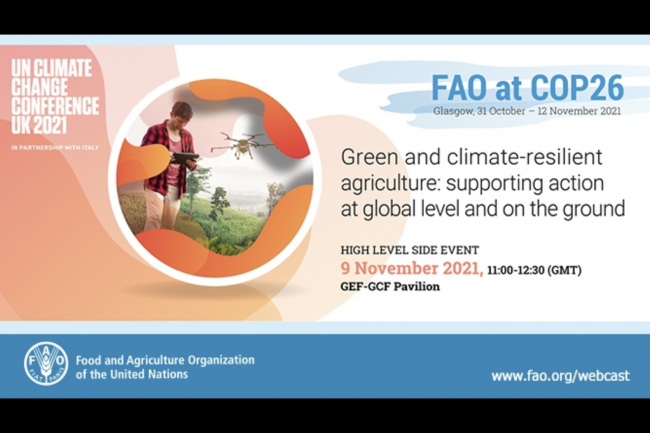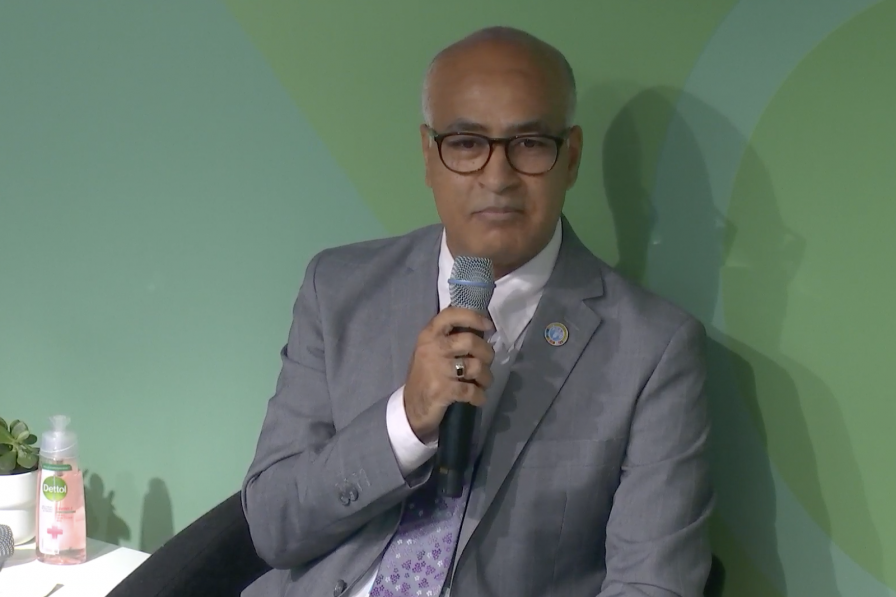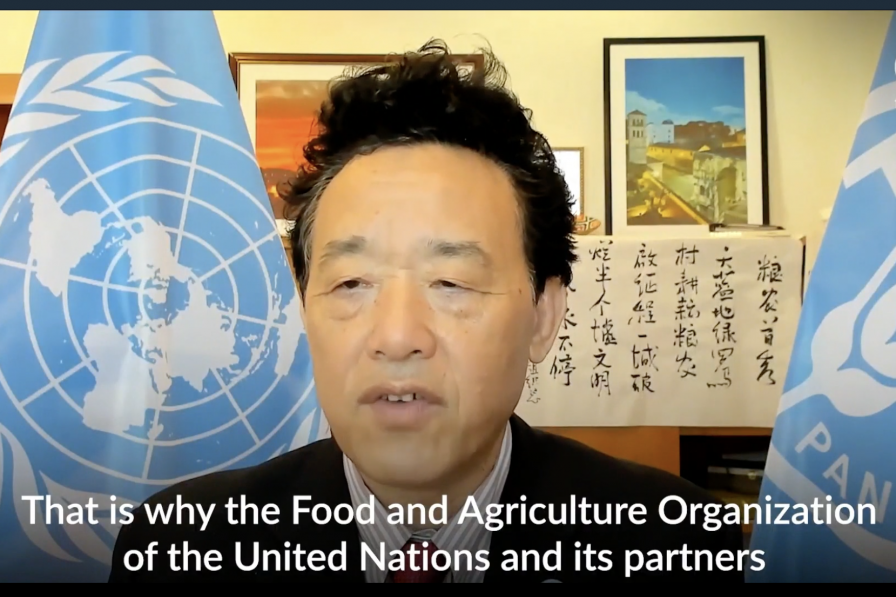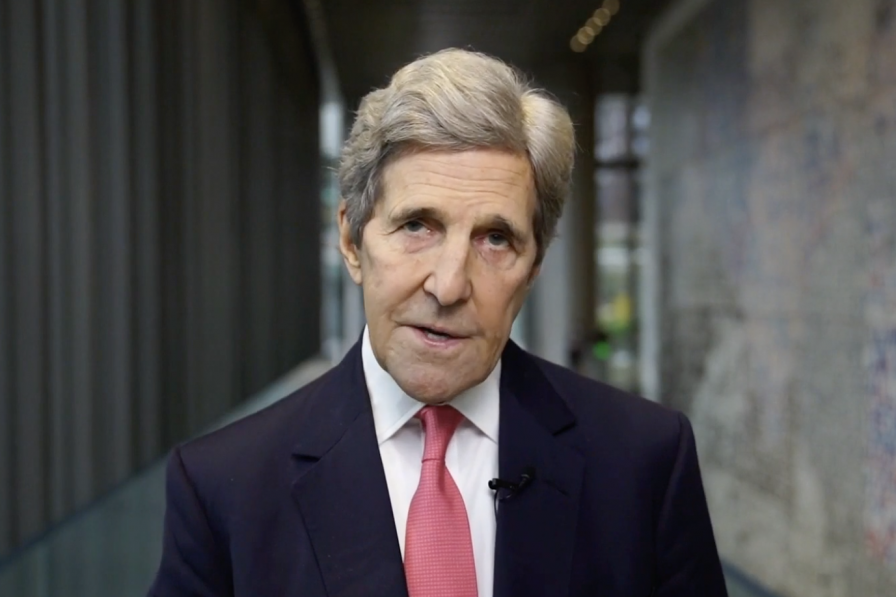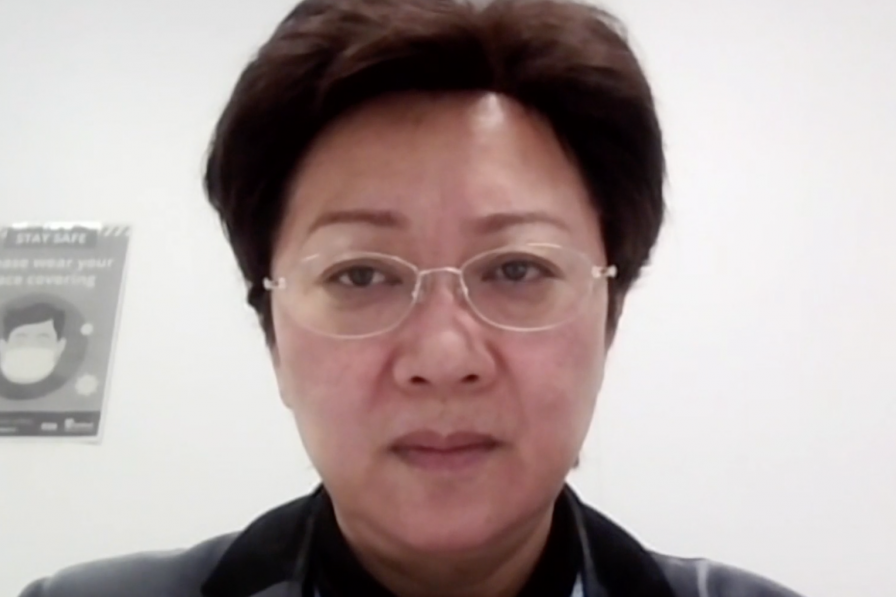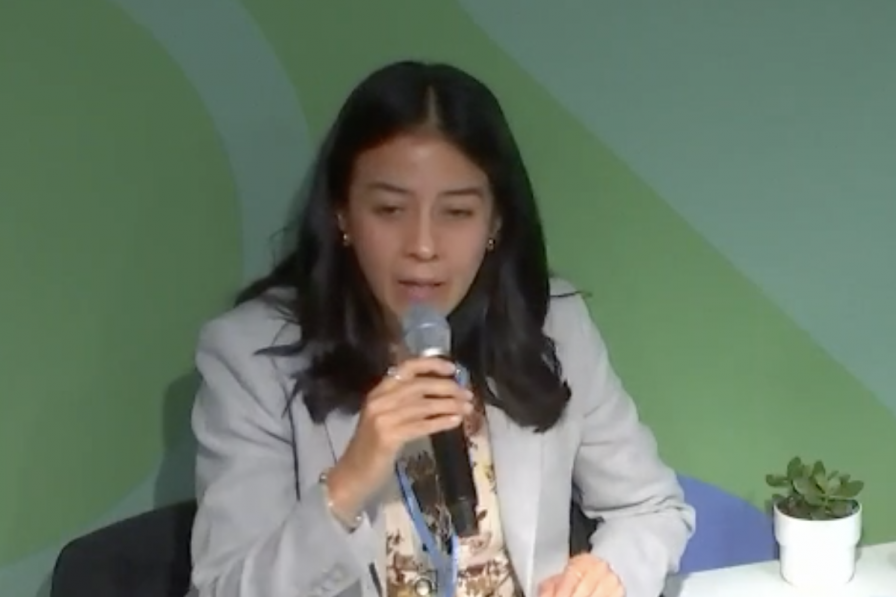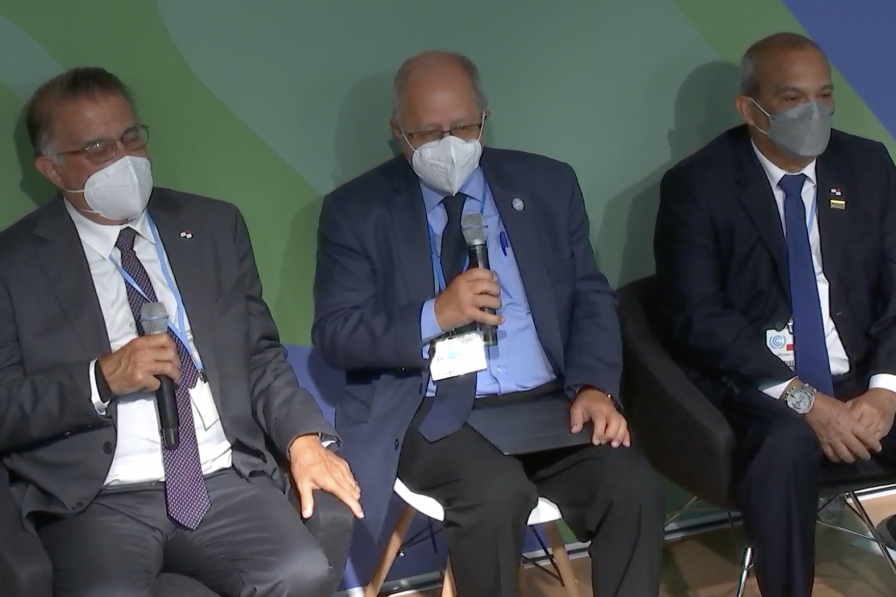Green and Climate Resilient Agriculture
Climate change poses a significant risk to our food systems, which threatens the health and wellbeing of the entire planet, including the very lives of the millions of people directly reliant upon existing global cycles of production and supply chains. At the same time, the agricultural sector contributes, in significant ways, to accelerating climate change impacts, leading to a dangerous maelstrom where shocks may increase in frequency and intensity unless urgent action is taken to address both the threats posed by, and to, our food systems. During this FAO event, representatives of government ministries, as well as international institutions and organizations, discussed what is required for a green and climate resilient agricultural sector to emerge. Key messages included:
- the need for an integrated approach across thematic areas as well as at the institutional level; and
- ensuring local work is supported by coherent government policies as well as adequate financing options.
Opening Remarks
FAO Director-General Qu Dongyu, via video, welcomed participants to the event, reminding them of the need for urgent action across the agricultural and food system for addressing food insecurity, and eradicating hunger and poverty.
John Kerry, US Special Presidential Envoy on Climate, underscored the critical role of agriculture and food sectors for achieving the global emissions goal of net zero by 2050, reminding participants that under current trends this will not be achieved. He also highlighted changes already set in motion, including present and future risks to agriculture and people on the frontlines. He said these risks will increase even with significant emission reductions; thus, he emphasized the importance of building resilience across society.
Xiaoling Yang, on behalf of Xie Zhenhua, Special Envoy for Climate Change, China, highlighted that more than half of the world’s population makes its living through food systems, be it in the production-, supply- or value chains. She stressed the importance of pursuing harmony between humankind and nature, to minimize risks facing present and future generations.
Zitouni Ould-Dada, Deputy Director of the Office of Climate Change, Biodiversity and Environment, FAO, moderated the event.
Roundtable 1: Global and Regional Action
The first session began with Ould-Dada asking panelists about efforts needed to scale up green and climate-resilient agri-food systems.
Carolina Fuentes, Green Climate Fund (GCF), recalled the GCF’s “sustainable pathways,” which focus on: promoting resilient agroecology to support mitigation and adaptation as well as encouraging farming conditions that counteract climate risks; facilitating climate-informed advice across decision-making levels; and reconfiguring food systems, which includes addressing how food is grown, produced, stored, transported, sold, and consumed.
Sonja Teelucksingh, Global Environmental Facility (GEF), emphasised the need for better integration across thematic areas as well as at the institutional level. She stressed the need for inter-ministerial communication to ensure policies are not counteracting work to address climate change. Regarding finance, she also underscored that it is not always about how much money is spent, but rather how it is spent and the ways in which coherent policy can help support greater project results.
Theo de Jager, World Farmers’ Organisation, reflecting back on farmers’ workshops from across the globe, said that while no silver bullets exist, they had found most of what farmers can do about climate change is done in soils. He pointed out that improving soil health takes time and effort, with farmers currently not receiving enough support from government and financiers to help them achieve this transition.
Roundtable 2: Action on the Ground
During this roundtable, ministers from Panama and Egypt discussed national efforts to achieve green and climate resilient agriculture.
Yasmine Fouad, Minister of Environment, Egypt, stressed the importance of: building institutional bridges across ministries; ensuring the development of national climate change strategies builds on previous work so to ensure coherency; and supporting small-scale farmers and local action, and providing opportunities for women within relevant sectors. She also said attention must be paid to the food-water-energy nexus, as well as waste.
Augusto Valderrama, Minister of Agricultural Development, Panama, and Milciades Concepción, Minister of Environment, Panama, together stressed the importance of ensuring that ministries work together when formulating policies, as well as carry out work across communities on the frontline of climate change and deforestation caused by unsustainable practices.
Closing Remarks
In closing remarks, Maria Helena Semedo, Deputy Director-General, FAO, emphasized that solutions must come from across scales, from in-country and on-farm experiences all the way to multilateral funding and governance bodies. She called for system-based approaches in food production with greater socio-economic benefits, less impacts on the environment, and more resilience against shocks and threats.
CONTACT
Barbara Fang | Barbara.Fang@fao.org
Christabel Clark | Christabel.Clark@fao.org
MORE INFORMATION
FAO Green and Resilient Agriculture Publication
FAO Green and Resilient Agriculture Website
To receive free coverage of global environmental events delivered to your inbox, subscribe to the ENB Update newsletter.

